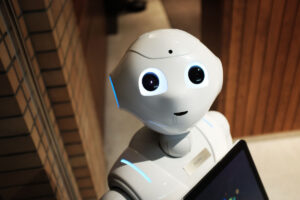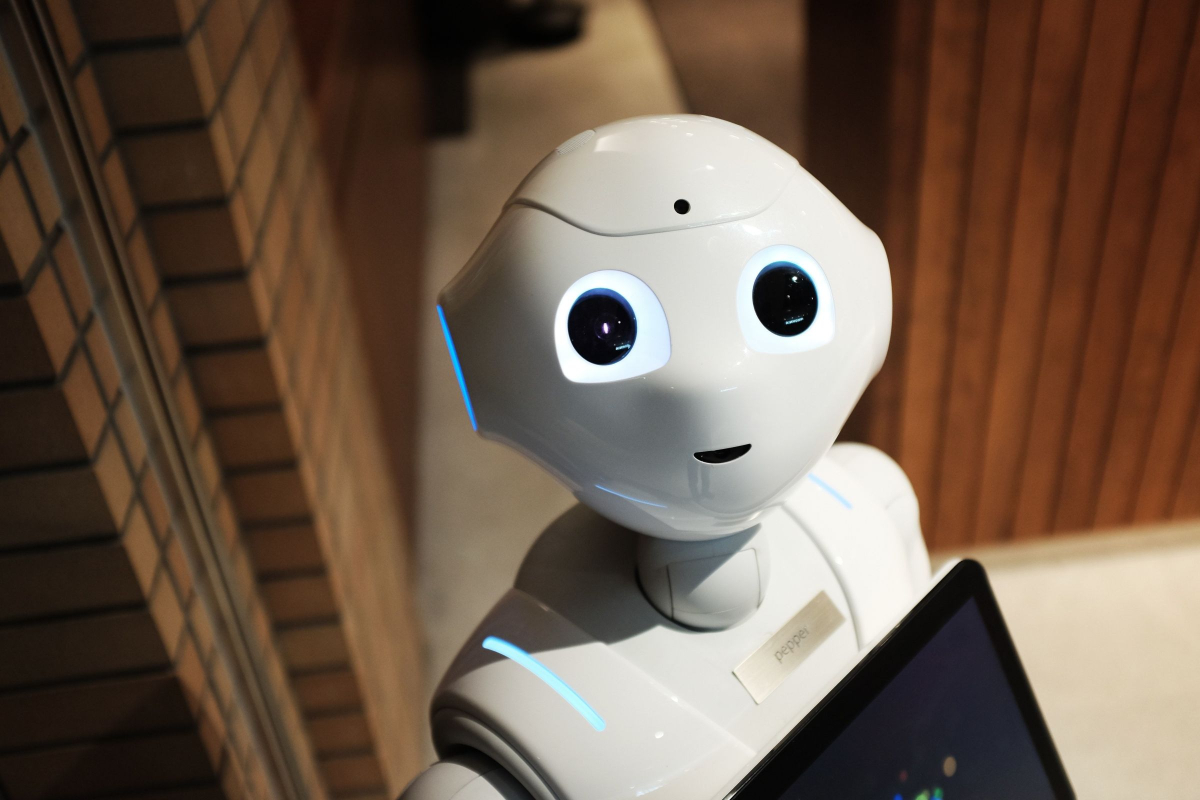
Here’s the fourth part of a reflection on historian Yuval Noah Harari’s work for individuals, professionals, leaders, consultants, teams, and organizations. This series is based on Harari’s books “21 lessons for the 21st century” and “Homo Deus, a brief history of the future”. What’s happening in the global system around organizations? What influences might there be for you and your team?
We need to understand the powers of biotechnology and computer algorithms. These powers are far more potent than steam and the telegraph, and they will not be used merely for the production of food, textiles, vehicles, and weapons. The main products of the 21st century might be bodies, brains, and minds – says Harari. I always thought this was ScienceFiction, but it is getting closer. Is your organization aware and exploring the implications? (Most don’t! The same goes for politicians: they should learn more about info-biotech fast. Let’s wake up).
Artificial Intelligence and Freedom
Big Data is watching you. Artificial Intelligence (AI) is here. It’s developing fast and is learning to read human emotions by absorbing lots of data from face recognition software and biometric wristbands. If you combine biometrics with infotech, the next-generation AI might be able to know me better than I know myself. Biometric devices don’t lie – whereas I might be biased about myself. Books could read my face and heart rate while I read them – suggesting what to read next. AI might manipulate my feelings – it senses I feel anxious (thanks to my wristband) and plays my favorite soothing music in my headset while suggesting I take some pills to alter my mood.
AI might even be better at what humans call intuition, which is essentially pattern recognition of data you’ve stored via your senses. Moreover, AI can be updated and connected, much faster than humans.
Algorithms can evolve from a handy oracle that I consult to making the decision for me – eventually. We already trust Google to find important information, and we do what algorithms like when we use SEO and adjust our blog posts so that Google will find me. What is true is what Google finds on the first page!
Also, as we have seen in the Corona pandemic, people give up privacy any time for health. If I can download an app that warns me when I’ve been around infectious people – I’ll take it to stay healthy.
Big banks and corporations already use algorithms to analyze data and make decisions about us: who’s eligible for a loan, who’s expected to be a valuable client?
The stock exchange is run by AI that no single human understands. A “Flash Crash” by algorithms on the stock exchange wiped out 1 trillion USD in around 10 minutes (this happened on 6 May 2010).
Whole teams work on Google: not one individual understands the system completely. This will get worse with machine learning and AI.
Are we losing control? What happens to our privacy, our freedom, our power? By the way, owning your data sounds good, but what does it mean? Data can be copied all the time. Virtual AI assistants like Siri on your smartphone might be eavesdropping, GPS-tracking will tell the tech companies where I am, and so on.
The next system is the internet-of-all-things; where my fridge knows what I’m eating and re-orders my favorites before I’m out of stock. The lighting system knows when I’m going to sleep – my wristband knows my stress levels and that I can’t sleep…
The individual is a tiny chip in a system no one understands. No one plans, controls or comprehends its developments and disruptions… Are you ready for a wild ride in our VUCA-world? It’s more volatile, uncertain, complex, and ambiguous than ever before.
Google, Facebook, Amazon, and others draw our attention with free services and sell our information to corporations who want to sell more. What if your employer knows your DNA and refuses to keep you employed unless you do a health treatment, and stop drinking and smoking?
Where’s our freedom and how is power shifting, now that AI is gathering more and more data?
Equality
Whoever owns the data has the future: data are the most important “things” nowadays. A small elite will own the algorithms in the future, and this process is underway. Bio- and infotech corporations are getting more powerful and inequality is developing. Right now, 1% of the richest people possess 50% of all resources. The richest 100 people own as much as the 4 billion poorest people.
Harari also expects biological inequality when the elite upgrade themselves – whenever that is possible. The super-rich will become the superhumans, and treat ordinary humans no better than in the 19th century. Different groups might have different futures – ordinary humans are less useful in that future.
We need to come up with upgraded democracies in this digital age – or there will be dictators abusing our data – or superhumans controlling us. As the market thinks about money only, we need to think about humankind.
Borders, some laws, and privacy have become obsolete thanks to web designers and coders, but you never voted for this! Technology “happens” and here we are – dealing with the consequences, behind on the latest developments.
Work
Somewhere in the future, you might not get a job as AI takes on more physical and cognitive skills. It’s already normal that you won’t keep the same job for life – we have to keep on learning. But the pace is accelerating with AI outperforming our learning capacities.
There will be some new jobs – teams of men and machines are currently the best combination. Today, it still takes thirty people for one killer drone (including technicians, developers, operators, and so on) but that will change. The majority of professionals in developed economies work in the service industry. What happens to our jobs when algorithms can teach, diagnose, design?
There will be a whole group of unemployed people. How will they make money? Governments collect taxes from corporations and the elite, and can distribute that money to citizens as a basis income. Or governments can provide basis products and services – but what will be the basis line?
Some countries will lose their factories when we start 3D printing wherever we are – and we don’t need factories overseas. How will those people earn a living? What would global solidarity entail? Can we collect taxes from the tech giants and distribute a basis universal income?
And the question is not just how you make money. How will you make meaning – when you’re not “useful” at work? Can you develop better relationships with your loved ones? Or will you watch Netflix all day long? How will we spend our time?
There are many questions – and though it sounds like Science Fiction – the future is nearer than you think. How are you preparing?
- What happens to the job market when artificial intelligence outperforms humans in cognitive tasks?
- What is the political impact of a new class of economically useless people?
- What happens to relationships and pension funds when nanotechnology and regenerative medicine turn eighty into the new fifty?
- How would this influence your line of work? Your organization?
- What might be some emerging threats and opportunities that you need to prepare for?
© Marcella Bremer, 2020. All rights reserved.
We offer positivity research and practices to develop resilience and collaboration skills. This might help to face the Corona pandemic and other future challenges.
That’s why you can enroll in the online Positive Culture Academy at a discount! Join today
If you want to prepare your organization to better respond to the Covid-19 situation: join the Culture Change Leadership Workshop online. Learn how to develop #culture with positive leadership and the Competing Values Framework.
Enroll via the Add-to-Cart button on the page. Let’s thrive in spite of the pandemic!
